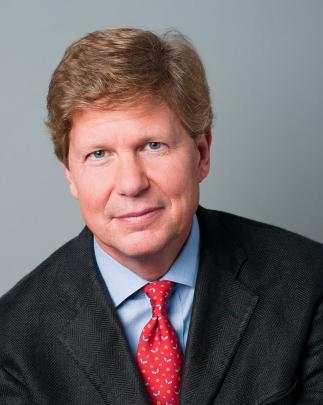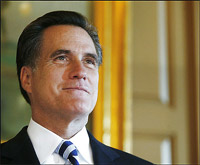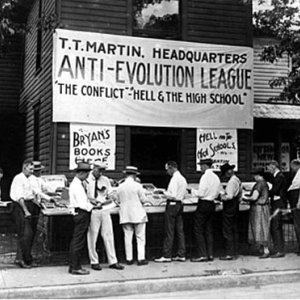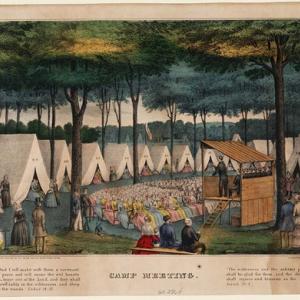
Randall Balmer, an Episcopal priest, is the John Phillips Professor in Religion at Dartmouth College and the author of Passion Plays: How Religion Shaped Sports in North America.
Posts By This Author
The Hidden Story of Christians and Racial Justice in U.S. Sports
Athletes, at risk to their lives and livelihood, have often been social prophets.
EVEN SIX YEARS later, it reverberates as one of the most striking segments on cable television in recent memory. Near the conclusion of her show on Feb. 15, 2018, Fox television personality Laura Ingraham chose to upbraid NBA stars LeBron James and Kevin Durant for their political commentary. She framed her comments as a “jumb dock alert” about the athletes’ “barely intelligible” and “ungrammatical” observations on how then-President Donald Trump was fanning the flames of racism.
“Must they run their mouths like that?” Ingraham asked rhetorically. “It’s always unwise to seek political advice from someone who gets paid $100 million a year to bounce a ball.” Protesting that “millions” voted for Trump to be “their coach,” she continued, “so keep the political commentary to yourself, or as someone said, ‘Shut up and dribble.’”
The segment was remarkable for many reasons, not least because Ingraham later praised NFL quarterback Drew Brees for stating that he “will never agree with anyone disrespecting” the United States flag, a reference to Colin Kaepernick and other athletes who knelt during the national anthem to protest police brutality. Ingraham’s full-throated defense of Brees in the face of criticism? “He’s allowed to have his view about what kneeling and the flag means to him,” she declared. “He’s a person.”
The obvious inference is that neither LeBron James nor Kevin Durant is a person. And when we pause to remind ourselves that Brees is white and James and Durant are African Americans, we plunge once again into the cauldron of sports, race, society, and politics.
Aside from the inherently racist nature of Ingraham’s remarks — she later denied any such intent — the segment is remarkable for the simple fact that a television personality who typically traffics in conspiracy theories and ideological rants devoted an entire segment to sports figures. That attention speaks to the cultural capital of athletes in our society, some of whom have assumed the role that religious figures once played in American life, that of moral conscience.
Before the Religious Right, Progressive Evangelicals Gained the National Spotlight
Because of evangelical political behavior over the last several decades, it’s tempting to believe that evangelicals have always supported right-wing causes and politicians. That is not the case, and there’s some reason to believe that in the run-up to the 2020 presidential election, we may be witnessing an awakening of conscience among some evangelicals. If so, progressive evangelicals could do far worse than look to the 1970s for inspiration.
When Evangelicals Doubled Down on Their Rejection of Larger Culture
Symbolically, the Scopes Trial on teaching evolution was a turning point.
Conspiracy Theories, Apocalyptic Rhetoric, and the Evangelical Embrace of Premillennialism
Times of crisis tend to engender apocalyptic thinking. We’re seeing that today during the coronavirus pandemic. Conspiracy theories abound, and some people are talking about the end of the world. Could the current crisis be God’s judgment for sinfulness or our persistent abuse of the environment? Is an apocalyptic reckoning at hand?
Doing Something for Self: The Evangelical Critique of Capitalism
The emergence of Bernie Sanders as one of two finalists for the Democratic presidential nomination has renewed focus on his self-identification as a “democratic socialist.” Although several pundits, including Paul Krugman of the New York Times, have argued that Sanders’s “socialism” is really a pale version of what most Europeans regard as socialism, many Americans — including those who identify as evangelical Christians — remain suspicious of Sanders’s ideology.
What Happened to Social Reform Evangelicals?
Last week, President Donald Trump spoke at the National Prayer Breakfast, an annual bipartisan event that brings together faith leaders and members of Congress. Using language like “I’ve been with you,” and “you better get out and vote on Nov. 3” — insinuating all those of faith gathered align with the president — Trump called once again on support from his most loyal followers: white evangelical Protestants.
Evangelicalism Is Dead. We Need a New Label for Our Faith
I don’t give up on evangelicalism lightly or willingly. Evangelicalism is in my DNA, and I’ll put my credentials as an evangelical up against anyone: evangelical parents, a preacher’s kid, gave my heart to Jesus at age three (and many times thereafter), youth group, Bible camp, graduated from Trinity College and Trinity Evangelical Divinity School. My father was a distinguished pastor in the Evangelical Free Church for 40 years; I honor his ministry and his memory.
Losing My Religion
How U.S. evangelicals rejected one of their own—and helped spawn the "New Atheism"
RECENT POLLS SUGGEST that America’s vaunted religiosity is slipping, including the percentage of people willing to identify themselves as evangelicals. At the same time, the percentage of avowed secularists has risen. A movement calling itself the “New Atheism”—those adamantly opposed to religion—has attracted a considerable following.
The oracles of this movement—including Richard Dawkins, Sam Harris, Daniel Dennett, and the late Christopher Hitchens—deny any possibility of the supernatural, assert that religious belief is irrational, and posit that religion has caused untold evil and suffering throughout history. Because of their dogmatism and their refusal to countenance views other than their own, I refer to these people as “secular fundamentalists.”
Hard data may be elusive, but the latest generation of American young people is much less religious than the last, and the growing secularism they represent could be a byproduct of the polarizing effect of the Religious Right. With evangelical fundamentalism being the dominant and most public form of U.S. Christianity over the last generation, young seekers would rather turn away from all religion than adapt to the harsh expression of faith that excludes so many of their peers and often stands against their aspirations for fairness and equality.
Religious fundamentalism has tainted the reputation of Christianity. For many, unbelief has become more palatable than belief, if believing requires an embrace of the distortions that have so characterized U.S. Christianity over the last several decades.
What prompted the emergence of this New Atheism or secular fundamentalism? What historical forces contributed to its rise? The roots of this phenomenon go back more than three decades—to the political mobilization of a different species of fundamentalism that became the movement commonly known as the Religious Right.
Randall Balmer answers, "What is an Evangelical?"
 The puzzle here is not that readers of the Bible would tilt toward the political left. That, for me, as well as for thousands of other American evangelicals, is self-evident. Jesus, after all, summoned his followers to be peacemakers, to turn the other cheek, to welcome the stranger and to care for “the least of these.” He also expressed concern for the tiniest sparrow, a sentiment that should find some resonance in our environmental policies.
The puzzle here is not that readers of the Bible would tilt toward the political left. That, for me, as well as for thousands of other American evangelicals, is self-evident. Jesus, after all, summoned his followers to be peacemakers, to turn the other cheek, to welcome the stranger and to care for “the least of these.” He also expressed concern for the tiniest sparrow, a sentiment that should find some resonance in our environmental policies.
No, the real conundrum lies in the subtitle the editors of Christianity Today assigned to Franzen’s article, which was titled, “A Left-Leaning Text.” Adjacent to a picture of a Bible tilted about 45 degrees to the left, the editors added the subtitle: “Survey Surprise: Frequent Bible reading can turn you liberal (in some ways).”
The fact that anyone should register surprise that the Bible points toward the left should be the biggest surprise of all.
Mitt Romney's Defining Moment
 In what may be the defining moment of his campaign, Mitt Romney, the former governor of Massachusetts and a Mormon, addressed the issue of faith and its bearing on his pursuit of the presidency. Pundits inevitably compared Romney's speech in College Station, Texas, with the speech that John F. Kennedy gave just down the road at the Rice Hotel, Houston, on September 12, 1960.
In what may be the defining moment of his campaign, Mitt Romney, the former governor of Massachusetts and a Mormon, addressed the issue of faith and its bearing on his pursuit of the presidency. Pundits inevitably compared Romney's speech in College Station, Texas, with the speech that John F. Kennedy gave just down the road at the Rice Hotel, Houston, on September 12, 1960.
The parallels [...]
The Wizard of Colorado Springs
In spring 1998, James Dobson, founder and head of Focus on the Family, was mad, and he traveled to Washington, D.C., to vent his fury.
Is God a Rams Fan?
If Kurt Warner is correct, maybe God studies the sports pages and fidgets with the remote control on Sunday afternoons like millions of American men.







